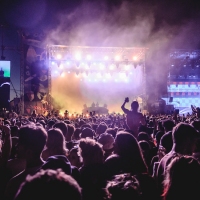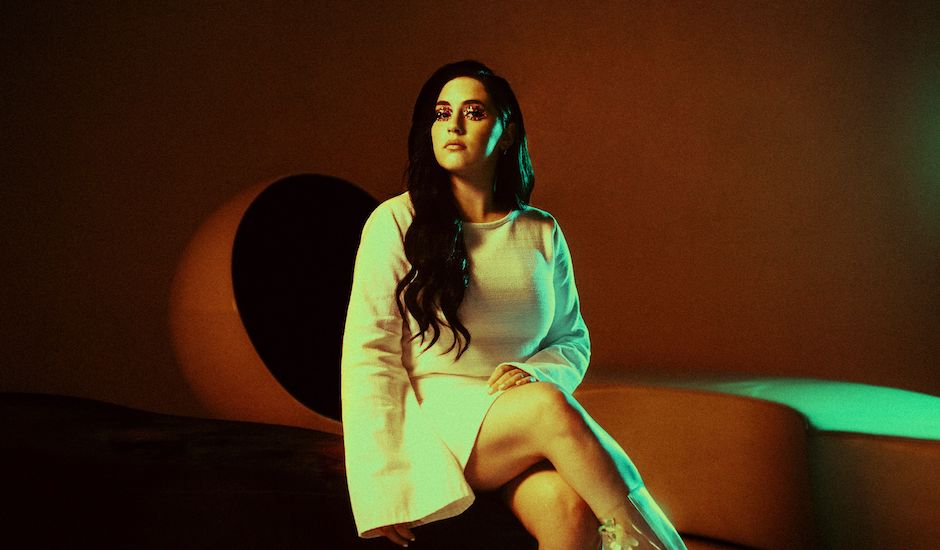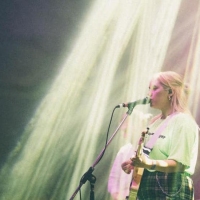 Let’s not beat around the bush: Live music is collapsing, and it’s fking depressingEven in the parts of the country where live music is beginning to thrive again, it’s hard not to think about the greater effects being felt nation-wide.
Let’s not beat around the bush: Live music is collapsing, and it’s fking depressingEven in the parts of the country where live music is beginning to thrive again, it’s hard not to think about the greater effects being felt nation-wide.

Tia Gostelow, on the complex journey to self-acceptance as an Indigenous Australian
In a powerful new piece, the musician reflects on the complexities of being a lighter-skinned Indigenous role model.
Article written by Tia Gostelow, a Mackay-based, Groote Eylandt-raised Indigenous Australian musician who just shared her second album, CHRYSALIS. Header image by Jeff Anderson Jr.
In the spirit of reconciliation, I acknowledge the Traditional Custodians of Country throughout Australia and their connections to land, sea and community. I pay my respect to their elders past and present and extend that respect to all Aboriginal and Torres Strait Islander peoples today.
Racism is unfortunately still a very common occurrence all over the world. I acknowledge I did grow up in a very privileged household and I live a very privileged lifestyle which has allowed me to do what I’m doing today.
Growing up, I always knew of my indigenous heritage but I never really acted on it or asked questions about it. I knew that my dad was Indigenous, and I knew that his side of the family owned and worked on cattle stations in Cape York with Aboriginal station hands; my family are all different shades but they are my family. I know that I am from Lama Lama country, but I never asked about any of it.

Being Indigenous was something that I didn’t really talk about or ask questions about until I went to high school. My school enrollments would include that I was Indigenous and I think that’s when I started to notice the remarks and comments. I would get asked to do the Welcome to Country at school assemblies and if I did do it, I noticed all of the looks people would give me because I don’t have dark skin. I would have other students asking me what percentage I am and questioning if I really am Indigenous and would come to the conclusion that it must come from my mum’s side as she has dark hair, and it couldn’t be from my Dad as he has red hair and fair skin. It made me feel really uncomfortable, and it got to a point where I would refuse to do the Acknowledgement of Country because I didn’t want to be questioned on it.
Things really started kicking off for me in my music career when I won the triple j Unearthed High Indigenous Initiative in 2016. It was such an exciting time in my life and I really felt like it was going to be possible for me to have a career in the music industry. Alongside all of this excitement came a lot of anxiety, especially when I was being asked to do interviews and talk about my culture. I felt like people would start questioning me and were going to make remarks about how white I am. I felt like a bit of a fraud to be honest, and I would avoid talking about my heritage because I felt so uncomfortable.
There have been times where I’ve also felt as an indigenous woman that I’ve been lumped into a category. We live in a time now where gender and cultural diversity is getting better but sometimes that doesn’t stop people from lumping you into certain categories or booking you to fill a quota. For me, I want to be booked because I’m good at what I do not because you need one more Indigenous female on your line-up. I’ve said no to booking requests where I knew I was a last-minute thought because an event needed to tick some more boxes.
I started to feel like I was being portrayed as an Indigenous role model which was also something that made me uncomfortable as I’m still so unsure of myself and I know I haven’t had anywhere near the challenges and barriers that a lot of other Indigenous people still face.

I think the turning point for me in being comfortable about speaking about my Indigenous heritage and not feeling like I would be judged was when I did an interview with Jonzy from Jam Pakt. He made me feel so comfortable, it was like I was talking to my brother and it allowed me to open up for the first time about how I felt like I was a fraud because of my ‘whiteness’. He allowed me to speak about these feelings and didn’t shun me like I thought most people would.
Having the opportunity to speak about this definitely alleviated a lot of my anxiety and worry about being judged or questioned. Now, I am proud to have the opportunity to Welcome to Country and don’t shy away from this now because I didn't feel worthy enough.
As I’m getting older, I’m learning more about my family and my culture, asking questions and understanding more about who we are and where we come from. I do acknowledge I need to talk more to my Grandad and ask questions as he is an elder, and as a family we are planning a trip to the Cape next year to visit places that are special to us.
I am proud of who I am, of my family, where I come from. I am proud to be an Indigenous woman.
Follow Tia Gostelow: FACEBOOK
 Let’s not beat around the bush: Live music is collapsing, and it’s fking depressingEven in the parts of the country where live music is beginning to thrive again, it’s hard not to think about the greater effects being felt nation-wide.
Let’s not beat around the bush: Live music is collapsing, and it’s fking depressingEven in the parts of the country where live music is beginning to thrive again, it’s hard not to think about the greater effects being felt nation-wide.
 Tia Gostelow, on the pitfalls of touring with Polycystic Ovary SyndromeIn a new guest essay, Tia Gostelow dives into her process of discovering Polycystic Ovary Syndrome, and how she learnt to tour with it.
Tia Gostelow, on the pitfalls of touring with Polycystic Ovary SyndromeIn a new guest essay, Tia Gostelow dives into her process of discovering Polycystic Ovary Syndrome, and how she learnt to tour with it.